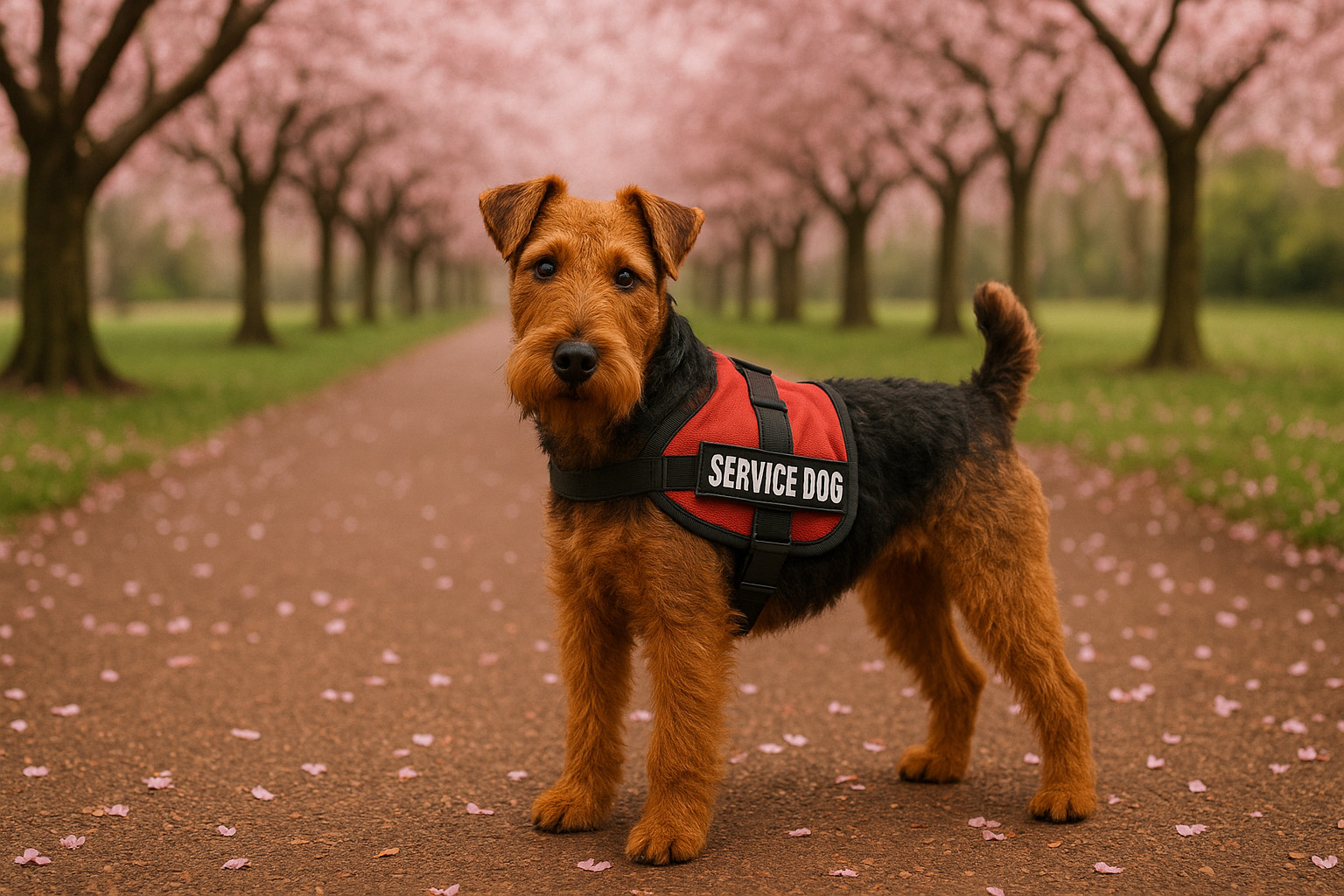Welsh Terrier as a Service Dog

The use of dogs in assisting humans with disabilities and specific needs has flourished over the years, showcasing the remarkable willingness and capability of our canine companions. In this realm, the Welsh Terrier, with its spirited nature and distinct characteristics, is explored for its potential as a service dog. Understanding whether this particular breed aligns with the rigorous demands of service work requires a detailed look into the physical and behavioral traits of the Welsh Terrier.
Welsh Terrier Overview
Originating from Wales, the Welsh Terrier is one of the oldest terrier breeds, historically bred for hunting vermin. They are known for their zestful nature, intelligence, and spirited behavior. These traits lend themselves to various roles, and this inquiry considers how effective they might be in the context of service work.
Physical Characteristics
The Welsh Terrier is a medium-sized dog, typically weighing between 20 to 22 pounds and standing about 15 inches tall at the shoulder. They possess a compact, sturdy build that combines strength with mobility. Their square-like frame and wiry, weather-resistant coat enable them to endure different environments, a factor beneficial for outdoor service work.
- Size & Stature: Their moderate size can be both an asset and a limitation. While they are portable and unobtrusive, their size makes them unsuitable for tasks requiring physical strength or acting as mobility aids.
- Energy & Agility: Bred to hunt and chase, Welsh Terriers are inherently energetic with a propensity for exercise. Their agility, speed, and endurance can be leveraged for dynamic roles requiring quick responses.
- Grooming: The low-shedding, hypoallergenic coat requires regular grooming and maintenance, an aspect to be considered for handlers with allergies or those requiring low-maintenance companions.
Temperament and Attitude
The Welsh Terrier's temperament is a blend of tenacity, intelligence, and independence – hallmarks of classic terrier behavior. Their strong will and alertness are significant factors when considering their role as a service dog.
- Intelligence & Problem-Solving: Welsh Terriers are intelligent, with strong problem-solving skills, which can be advantageous for service tasks requiring fast thinking and adaptability. However, their cleverness often pairs with a degree of stubbornness, making them more challenging to train than some other breeds.
- Independence & Willfulness: While this independence can empower them to take initiative in certain scenarios, it can also lead to distractions or disobedience if not managed with consistent, firm training techniques.
- Social Behavior: Generally friendly and sociable, Welsh Terriers usually get along well with people. However, their terrier nature can sometimes lead to aggression towards other animals, requiring careful socialization.
Types of Service Work
Given their unique physical and behavioral attributes, Welsh Terriers may be suitable for specific types of service work, although they may not fit all roles.
- Psychiatric & Emotional Support: The breed’s lively spirit and companionship provide excellent emotional support, offering comfort and anxiety relief for handlers. Their engaging personality can uplift moods and ensure companionship without the physical demands required of mobility aids.
- Hearing Alert: Welsh Terriers’ acute sense of hearing and alertness make them excellent candidates for hearing alert roles. They can be trained to recognize and respond to auditory cues essential for individuals with hearing impairments.
- Medical Alert: Although less commonly used for tasks like seizure alert due to size limitations, their intelligence means they can potentially be trained to recognize specific handler cues for medical alerts.
Health Considerations
Knowing the health profile of a potential service dog breed is critical in evaluating their long-term viability and effectiveness.
- Common Health Issues: Welsh Terriers are generally healthy, but they can be susceptible to certain conditions such as hip dysplasia, hypothyroidism, and allergies. These health issues can impact service work, particularly if related to mobility or focus.
- Lifespan & Vitality: With a lifespan of about 12 to 15 years, they provide a relatively stable long-term service dog partner option. Ensuring regular health checks and maintaining a healthy lifestyle is crucial for their service career longevity.
Training and Suitability
The trainability of the Welsh Terrier is a double-edged sword characterized by their intelligence and independence.
- Trainability: They require consistent, patient, and varied training approaches to stay engaged. Their high energy and curiosity mean they excel with positive reinforcement techniques but may struggle with repetitive and monotonous tasks.
- Independence in Service Roles: Their ability to make decisions independently can be useful, but it necessitates a handler who can establish clear authority and trust.
- Socialization & Adaptability: Early socialization is vital due to their potential aggression towards other animals and need for better adaptability in varying environments, especially for public service roles.
Summary of Welsh Terrier
Assessing the Welsh Terrier as a service dog involves weighing their physical and temperament strengths against roles where they can excel.
- Pros:
- Agile and energetic, with the endurance to handle dynamic tasks.
- Intelligent problem-solvers capable of learning complex tasks.
- Friendly demeanor conducive to emotional and psychiatric support roles.
- Cons:
- Size constraints limit physical support capabilities.
- Stubborn and independent nature requires experienced, firm training.
- Potential health issues that could impact service longevity.
- Best Suited Service Roles:
- Emotional support companion
- Hearing alert duties
In summary, while Welsh Terriers may not be the ideal fit for all service dog roles due to specific physical and behavioral characteristics, they have the potential to be excellent companions and provide valuable support in roles that capitalize on their intelligence, friendliness, and acute senses. Handlers and trainers considering a Welsh Terrier for service work should tailor tasks to their strengths and provide robust training to overcome any innate challenges.











